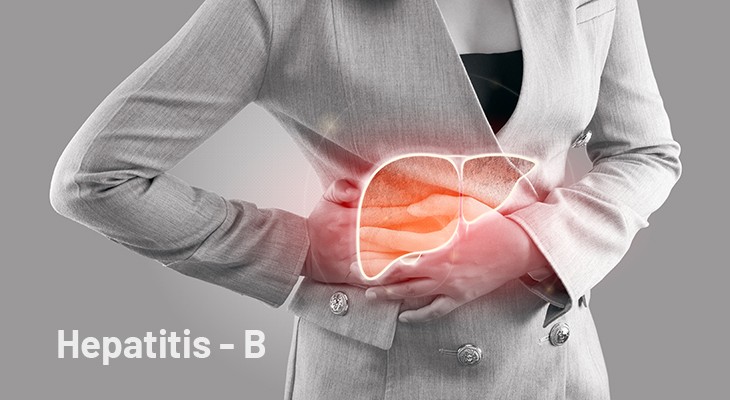Hepatitis B, a potentially severe liver infection caused by the hepatitis B virus (HBV), affects one-third of the world’s population. While most adults recover fully from an acute (short-term) infection, others develop chronic (long-term) hepatitis B, increasing their risk of liver damage, cirrhosis, cancer, and even death. This blog will talk about hepatitis B, from its causes and symptoms to prevention and risk factors.
Hepatitis B Symptoms
The symptoms of acute hepatitis B can range from mild to severe, typically appearing one to four months after infection. These may include:
- Abdominal pain
- Dark urine
- Fever
- Joint pain
- Loss of appetite
- Nausea or vomiting
- Weakness
- Fatigue
- Jaundice (yellowing of the skin and eyes)
It’s essential to note that some infected individuals, especially young children, may not exhibit any symptoms.
Hepatitis B Causes
Hepatitis B is primarily spread through contact with infected blood, semen, or other body fluids. It does not spread through casual contact like sneezing or coughing.
Common transmission routes include:
- Unprotected sex
- Sharing needles during drug use
- Accidental needle sticks (a concern for healthcare workers)
- Mother-to-child transmission during childbirth
However, timely hepatitis B vaccination of newborns can prevent most cases of transmission from infected mothers.
Risk Factors of Hepatitis B
Several factors increase the risk of hepatitis B infection, including:
- Unprotected sex with multiple partners
- Sharing needles during drug use
- Being a man who has sex with other men
- Living with someone with chronic hepatitis B
- Having a job that exposes individuals to human blood
- Traveling to regions with high infection rates also heightens the risk
Complications of Hepatitis B
Chronic hepatitis B can result in severe complications, including:
- Cirrhosis
- Liver cancer
- Liver failure
- Reactivation of the virus under immunosuppression
- Kidney disease
- Blood vessel inflammation
Early diagnosis and appropriate medical care are essential to prevent these complications.
Prevention of Hepatitis B
Hepatitis B vaccination is a highly effective preventive measure against the disease. The recommended immunization schedule involves two or three injections, depending on the vaccine. It’s crucial for various groups:
- Newborns
- Children
- Healthcare workers and others exposed to blood
- Men who have intercourse with other men
- People with multiple sexual partners
- Sexual partners of someone with hepatitis B
- Individuals who inject illegal drugs or share needles and syringes
- Individuals suffering from persistent liver disease
- End-stage renal disease patients
- Travelers to regions with high infection rates
Take Precautions to Avoid HBV
Beyond hepatitis B vaccination, consider these measures to lower your risk:
- Understand the hepatitis B status of sexual partners
- Consistent condom use, especially when the partner’s health status is uncertain
- Avoid illegal drug use or using sterile needles
- Ensure safe body piercing and tattoo practices
- Get vaccinated before traveling to high-risk regions
Early diagnosis and management are crucial for controlling hepatitis B infection and preventing complications. If you are concerned about your risk or have any symptoms, please consult your doctor for testing and further guidance. Staying informed and taking necessary precautions can safeguard your health and well-being against hepatitis B.

